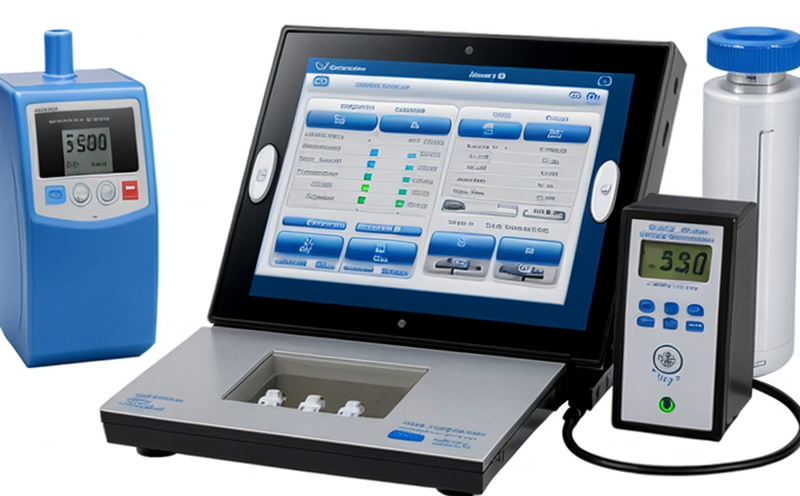ISO 80369-7 Small-Bore Connector Misconnection Resistance Testing
The ISO 80369-7 standard is a crucial component of medical device safety, focusing on small-bore connectors used in infusion pumps and drug delivery systems. These connectors are designed to prevent misconnections that could lead to serious patient harm or death by ensuring compatibility with the correct devices only.
The testing process evaluates the resistance of these connectors to misconnection, which is achieved through a series of mechanical tests that simulate real-world conditions. The primary objective is to ensure that the connector does not mate with unintended devices, thus maintaining patient safety.
For quality managers and compliance officers, this test ensures adherence to regulatory standards. For R&D engineers, it provides critical feedback on design modifications needed for improved performance. Procurement teams can use these results to validate suppliers' products meet the necessary requirements.
The testing involves several key steps: first, the connector is prepared according to ISO 80369-7 specifications. This includes cleaning and drying the specimen to prevent any external factors from affecting the test results. The specimen is then placed in a fixture designed for the specific type of connector.
The testing apparatus simulates real-world use by applying forces that mimic how connectors are used during patient care. For instance, it replicates the insertion and removal actions performed by healthcare professionals. The force applied can vary depending on the connector's intended use, but typical values range from 10 to 50 Newtons.
The test is conducted under controlled conditions to ensure repeatability and accuracy. After applying the specified forces, the tester observes whether the connector remains properly mated or if it disengages, indicating a successful misconnection resistance test. The results are recorded and analyzed for compliance with ISO 80369-7.
This testing is essential in ensuring that medical devices comply with international safety standards. It plays a vital role in preventing adverse events related to misconnections, which can lead to incorrect dosages or the introduction of air bubbles into the patient's bloodstream.
Understanding the scope and purpose of ISO 80369-7 is crucial for any medical device manufacturer looking to produce safe and reliable products. By adhering to these standards, manufacturers can ensure their devices meet global regulatory requirements and contribute to improving patient safety.
Applied Standards
| Standard | Description |
|---|---|
| ISO 80369-7 | This standard specifies the requirements for small-bore connectors used in infusion pumps and drug delivery systems. It ensures that these connectors are designed to resist misconnection with unintended devices. |
International Acceptance and Recognition
- The ISO 80369-7 standard is widely recognized by regulatory authorities around the world, including the United States Food and Drug Administration (FDA) and the European Medicines Agency (EMA).
- Many countries have adopted this standard as a requirement for medical device approvals.
- The standard's acceptance extends to various international markets, ensuring that products certified under ISO 80369-7 are compliant with global safety regulations.
Environmental and Sustainability Contributions
The testing of small-bore connectors for misconnection resistance is a critical step in ensuring patient safety, but it also contributes to environmental sustainability by reducing the risk of errors that could lead to medical waste. By preventing incorrect dosages or introduction of air bubbles into patients' veins, these tests help reduce the need for re-administration of medications and thus lower overall healthcare costs.
Furthermore, compliance with ISO 80369-7 standards ensures that devices are designed with safety in mind from the outset. This reduces the likelihood of product recalls due to design flaws or misuse, which can result in unnecessary production waste and resource consumption.





